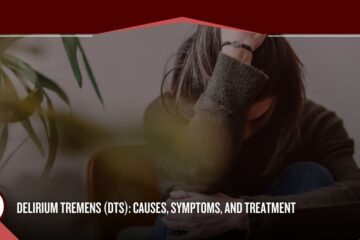Alcohol abuse among young adults in San Antonio has become a prevalent issue that demands our attention. Unlike other addictive substances, alcohol enjoys a higher level of social acceptance, contributing to its widespread misuse among this demographic. At Alamo Behavioral Health, we have closely observed a concerning surge in Alcohol Use Disorders (AUDs) among young adults, prompting us to delve into the root causes and potential solutions. We aim to shed light on the pressing matter of alcohol abuse in San Antonio’s youth, emphasizing the importance of awareness, prevention, and support in tackling this troubling trend.
The Extent of Alcohol Abuse Among Young Adults in San Antonio
Initially, we should quantify the extent of this phenomenon. In doing so, we can illustrate just why addressing it commands such urgency.
Unfortunately, alcohol abuse has been concerning Texas for years. In 2011, “18.9% of adults and 23.5% of high school students reported binge drinking,” according to the CDC. This caused preventable deaths and caused ample physical and psychological harm to both individuals and families.
These numbers have only slightly improved since. The Texas HHS reports that in 2018:
- “More than half of adults in Texas reported consuming alcohol in the past month”
- “Approximately 6% of Texans reported heavy drinking (15 or more drinks per week for men or 8 or more drinks per week for women)”
- “17% of Texans reported binge drinking (5 or more drinks on an occasion for men or 4 or more drinks on an occasion for women)”
This highlights a persistent, consistent trend across the nation. Indeed, NIH reports some concerning statistics; in 2021,
- “29.5 million people ages 12 and older (10.6% in this age group) had AUD in the past year”
- “894,000 youth ages 12 to 17 (3.4% in this age group) had AUD in the past year”
- “28.6 million adults ages 18 and older (11.3% in this age group) had AUD in the past year”
As such, it is evident that alcohol abuse persists across the nation and in Texas alike. Most worryingly, it persists among young people and young adults.

Consequences of Alcohol Abuse
As outlined above, alcohol abuse can have severe consequences. These do include death but also range significantly depending on each case, and include:
- Physical health impacts
- Mental health consequences
- Social and behavioral challenges
#1 Physical Health Impacts
First, alcohol abuse among young adults can have severe physical health consequences, including:
- Liver Damage: Excessive alcohol consumption overwhelms the liver’s ability to metabolize alcohol, leading to fatty liver, alcoholic hepatitis, and cirrhosis.
- Cardiovascular Complications: Heavy drinking raises blood pressure, increases the risk of heart disease, and may trigger arrhythmias or cardiomyopathy.
- Neurological Impairment: Alcohol can damage brain cells, impairing cognitive function, memory, and coordination.
- Gastrointestinal Issues: Irritation of the gastrointestinal tract can cause gastritis, ulcers, and pancreatitis.
- Nutritional Deficiencies: Alcohol interferes with nutrient absorption, leading to deficiencies in vitamins and minerals.
- Weakened Immune System: Prolonged alcohol abuse weakens the body’s defense against infections and illnesses.
- Increased Cancer Risk: Alcohol consumption is associated with an elevated risk of developing various cancers, including liver, breast, and esophageal cancer.
Such physical health impacts do depend on various factors, however, such as addiction severity and duration.
#2 Mental Health Challenges
In addition, alcohol abuse among young adults can have profound mental health consequences, including:
- Depression and Anxiety: Excessive alcohol consumption disrupts brain chemistry, leading to mood disorders like depression and anxiety.
- Cognitive Impairment: Alcohol can impair memory, concentration, and decision-making abilities, hindering overall cognitive function.
- Increased Risk of Suicidal Ideation: Alcohol abuse elevates the risk of suicidal thoughts and behaviors, especially when coupled with mental health disorders.
These effects may kindle what NIDA names “dual diagnosis,” where mental health disorders and substance use disorders co-occur. Dual diagnosis treatment centers San Antonio TX offers do argue that dual diagnosis cases represent a cycle of harmful behavior, where one condition exacerbates the other.

#3 Social and Behavioral Consequences
Finally, alcohol abuse among young adults can also lead to significant social and behavioral consequences, including:
- Impaired Relationships: Excessive drinking can strain personal relationships, causing conflicts and emotional distance.
- Academic and Career Issues: Alcohol abuse may result in poor academic performance, absenteeism, and difficulties maintaining steady employment.
- Risky Behavior: Intoxication can lead to engaging in risky behaviors, such as driving under the influence or participating in unsafe activities.
- Legal Problems: Alcohol-related incidents can lead to legal consequences, including DUI charges and public disturbances.
- Social Isolation: Young adults struggling with alcohol abuse may withdraw from social activities and isolate themselves from friends and family.
- Financial Strain: Heavy drinking can lead to financial problems due to excessive spending on alcohol and related expenses.
Recognizing these social and behavioral ramifications highlights the need for comprehensive support and intervention to address alcohol abuse effectively in young adults. Early intervention can mitigate the impact on their lives and help them regain control and stability.
Factors Contributing to Alcohol Abuse Among Young Adults
With the above in mind, the reasons behind alcohol abuse and AUDs warrant exploration as well. As our alcohol detox center Texas notes, the following tend to be the most prominent reasons behind alcohol abuse:
- Peer pressure and social norms
- Stress and coping mechanisms
- Accessibility and availability
#1 Peer Influence and Social Norms
First, peer influence and social norms play a significant role in contributing to alcohol abuse among young adults in San Antonio. As individuals navigate through their formative years, the desire to fit in and be accepted by their peers often leads them to adopt drinking behaviors that align with prevailing social norms. BORG drinking is an example of a trend that leads to excessive alcohol consumption among young people.
Peer pressure can be particularly strong during social gatherings and events, where alcohol consumption is common and perceived as a rite of passage. The fear of being ostracized or labeled as an outsider may drive young adults to indulge in excessive drinking, disregarding potential consequences.

#2 Stress and Coping Mechanisms
Second, stress and coping mechanisms significantly contribute to alcohol abuse among young adults. The pressures of academic challenges, career uncertainties, and personal relationships can lead to overwhelming stress. In search of relief, some young adults may turn to alcohol as a coping mechanism, hoping it will temporarily alleviate their anxieties.
Unfortunately, this maladaptive coping strategy can quickly escalate into a harmful pattern of alcohol abuse. Addressing this issue requires fostering healthier coping mechanisms, often through individual therapy for addiction in San Antonio and beyond. Such mechanisms can include seeking social support, engaging in physical activity, or practicing mindfulness techniques, to empower young adults to manage stress effectively and avoid the pitfalls of alcohol misuse.
#3 Accessibility and Availability of Alcohol to Young Adults
Lastly, as outlined above, the accessibility and availability of alcohol serve as significant contributors to alcohol abuse among young adults. In many communities, alcohol is readily accessible and widely available at various venues, including bars, restaurants, and social events. The ease of obtaining alcohol, coupled with limited age restrictions enforcement, increases the likelihood of young adults engaging in excessive drinking.
Additionally, aggressive marketing tactics and appealing advertisements can further influence their perception of alcohol as a normative and socially acceptable product. Addressing this issue demands comprehensive strategies, including stricter alcohol regulations and targeted awareness campaigns, to curtail easy access and reduce the appeal of alcohol among young adults, thereby promoting safer and more responsible consumption patterns.
Prevention and Intervention Strategies
Prevention and intervention strategies hold immense significance in addressing alcohol abuse among young adults in San Antonio. Implementing preventive measures at an early stage is vital in curbing the onset of problematic drinking behaviors. Educational programs and awareness campaigns can raise young adults’ understanding of the risks associated with alcohol abuse and empower them to make informed decisions.

Moreover, fostering a supportive and inclusive environment in schools, colleges, and communities helps combat peer pressure and encourages responsible choices. Introducing and enforcing stricter regulations on alcohol sales and consumption can limit young adults’ easy access to alcohol, deterring impulsive use.
For those already struggling with alcohol abuse, timely and comprehensive intervention is essential. Early screening and identification of at-risk individuals can facilitate prompt referral to treatment programs. These programs should:
- begin with medical detox in Texas and beyond to ensure a successful and comfortable detoxification
- offer evidence-based interventions, including cognitive-behavioral therapy and motivational interviewing, to address underlying factors contributing to alcohol misuse
- include pharmacotherapy as needed to manage each case’s unique needs best
Support groups and counseling sessions can also provide a safe space for young adults to share experiences. Through them, they can seek guidance from peers who have successfully overcome similar challenges.
Additionally, involving family members and loved ones can strengthen the young adult’s support system and improve treatment outcomes. Family therapy for addiction in Texas follows this principle, strengthening the individual’s recovery capital and leveraging family dynamics.
Treatment and Recovery Support
On the subject of treatment, effective treatment and recovery support are crucial in addressing alcohol abuse among young adults. Seeking professional help is essential, and treatment plans should be tailored to individual needs and circumstances. Therapies, such as cognitive-behavioral therapy and motivational enhancement, can help young adults develop coping strategies and change harmful behaviors. Medications may also be prescribed to reduce cravings and manage withdrawal symptoms.

During recovery, support groups and counseling play a vital role in providing a safe space for sharing experiences and building a support network. Family involvement and education are also key in fostering a healthy, understanding environment. Encouraging young adults to engage in positive, alcohol-free activities helps in the recovery process and provides a sense of belonging.
Long-term recovery requires ongoing commitment, and relapse prevention strategies help young adults navigate challenges and maintain sobriety. By offering comprehensive treatment and strong support systems, we can empower young adults to overcome alcohol abuse and achieve lasting recovery for a brighter future.
Collaborative Efforts and Policy Measures
Finally, in San Antonio and across Texas, collaborative efforts and policy measures seek to address alcohol abuse among the young population. Local health organizations, educational institutions, and community groups are working together to develop preventive programs, raise awareness, and provide resources for at-risk individuals. Additionally, targeted interventions are being deployed in schools and colleges to educate young adults about the dangers of excessive drinking and promote responsible behaviors. Moreover, strict enforcement of age restrictions at alcohol-selling establishments helps limit young adults’ access to alcohol and curtails underage drinking.
Nationally, the US government and various organizations are taking significant steps to combat alcohol abuse among young adults. Federal agencies are allocating funding for research on effective prevention and treatment approaches. Nationwide awareness campaigns are being conducted to reach a broader audience and reduce the stigma associated with seeking help for alcohol-related issues. Policies are being developed to support access to evidence-based treatments and recovery services. Furthermore, collaborations between federal, state, and local entities facilitate the dissemination of best practices and ensure a unified approach to addressing alcohol misuse among young adults across the country.

By combining regional initiatives with national efforts, collaborative endeavors, and policy measures can make substantial strides in tackling alcohol abuse in the young population, promoting healthier communities, and fostering brighter futures for the nation’s youth.
Alamo Behavioral Health Can Help
Alcohol abuse among young adults in San Antonio demands urgent attention and action. While alcohol may enjoy social acceptance, its serious consequences on physical and mental health cannot be ignored. It is essential that we take alcohol abuse more seriously, acknowledging its detrimental effects and working collectively to address the issue.
At Alamo Behavioral Health, we strongly believe that prevention and intervention efforts play a vital role in curbing this phenomenon. By fostering a culture that prioritizes the well-being of young adults and actively combating alcohol abuse, we hope to create a safer and more supportive environment that allows our youth to thrive and flourish.
If you would like to know more about us or our services, please feel free to contact us today. Our teams are always available and will be more than happy to assist you.





